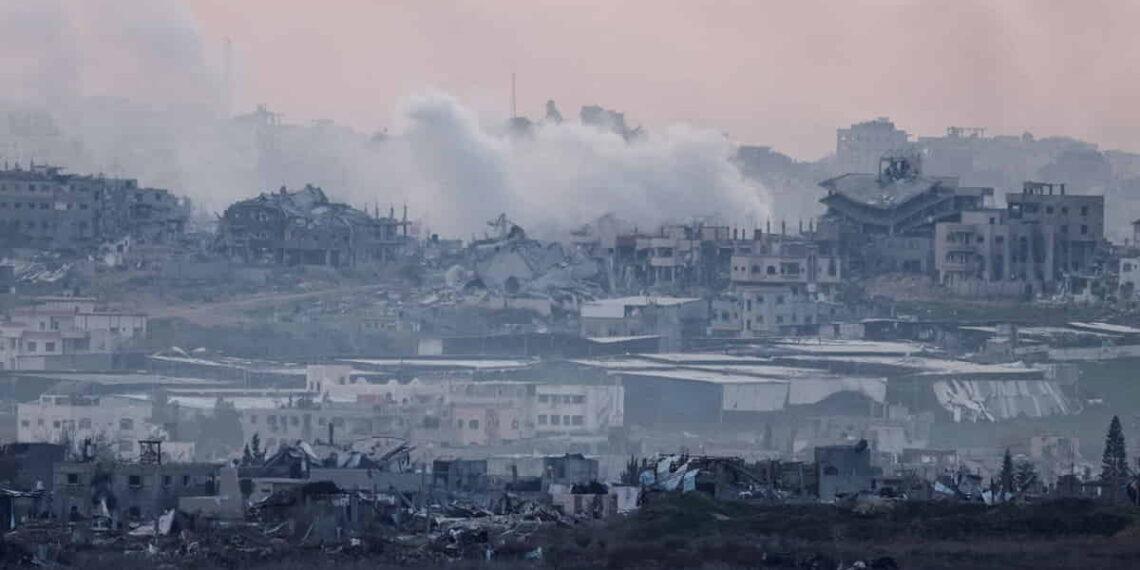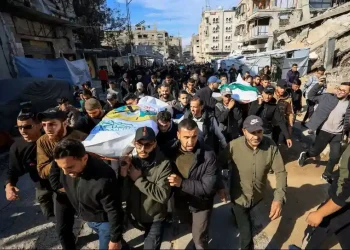Israel Delays Cabinet Vote on Gaza Truce After Hamas Allegedly Reneges on Agreement
Israel has delayed a cabinet vote on the proposed ceasefire and hostage deal with Hamas, citing concerns that the group has not honored parts of the agreement. Despite these claims, Hamas insists it is committed to the truce.
The deal, reached on Wednesday, aims to pause the fighting in Gaza, facilitate the release of Israeli hostages, and free Palestinian prisoners. The three-phase deal, which is expected to begin Sunday, will span six weeks, although some details remain unclear. Israeli Prime Minister Benjamin Netanyahu refrained from commenting on the deal until all details are finalized.
Escalating Violence in Gaza
Shortly after the deal was announced, Israeli airstrikes intensified, resulting in at least 45 deaths in Gaza City, according to Gaza Civil Defense. In the 24 hours following the announcement, the Israeli bombardment led to the highest daily death toll in over a week, with 81 Palestinians confirmed dead and at least 188 others injured.
Emergency crews described scenes of relentless airstrikes throughout the night. Tragically, 77 Palestinians, including 21 children and 25 women, were killed after the ceasefire was agreed upon. More than 250 others were injured. Among the casualties were two Palestinians who sought refuge in a school in the Zeitoun neighborhood and others who were struck in northern Gaza.
International Reactions and Calls for a Permanent Ceasefire
While the ceasefire and hostage deal were met with praise from international aid organizations, which vowed to increase their humanitarian efforts in Gaza, many human rights groups are pushing for a permanent ceasefire. The United Nations’ agency for Palestinian refugees has called for “rapid, unhindered, and uninterrupted humanitarian access” to Gaza to alleviate the suffering caused by the ongoing conflict.
Political Complications for Netanyahu
Despite the international attention and the political significance of the deal, Israeli Prime Minister Benjamin Netanyahu has yet to comment publicly on the ceasefire agreement. The delay in the cabinet vote has raised questions about his political position and the internal opposition he faces.
Netanyahu has been walking a delicate line between public support for the release of hostages and the concerns of hardline ministers in his government. National Security Minister Itamar Ben Gvir and Finance Minister Bezalel Smotrich have expressed strong reservations about the ceasefire and the potential implications for Israel’s military operations in Gaza.
In a statement, Netanyahu’s office noted that Hamas had initially attempted to alter key elements of the deal, particularly concerning the deployment of Israeli Defense Forces in Gaza. However, the prime minister’s office insisted that the agreement remained largely intact after Hamas backed down from these demands.
Despite this, Israel’s cabinet said Thursday that it would not convene until it received confirmation from mediators that Hamas had agreed to all parts of the deal.
Protests Erupt in Israel Against the Ceasefire Deal
Meanwhile, protests erupted in Jerusalem on Thursday as demonstrators, opposed to the ceasefire, blocked roads leading into the city. In some areas, protesters carried signs declaring, “Yes to victory, no to surrender.” Others staged symbolic protests outside Israel’s Supreme Court, voicing their opposition to the deal with Hamas.
As tensions rise and the situation in Gaza remains dire, both sides remain entrenched in their positions, and the future of the truce and the wider conflict remains uncertain.
This article was rewritten by JournosNews.com based on verified reporting from trusted sources. The content has been independently reviewed, fact-checked, and edited for accuracy, neutrality, tone, and global readability in accordance with Google News and AdSense standards.
All opinions, quotes, or statements from contributors, experts, or sourced organizations do not necessarily reflect the views of JournosNews.com. JournosNews.com maintains full editorial independence from any external funders, sponsors, or organizations.
Stay informed with JournosNews.com — your trusted source for verified global reporting and in-depth analysis. Follow us on Google News, BlueSky, and X for real-time updates.














